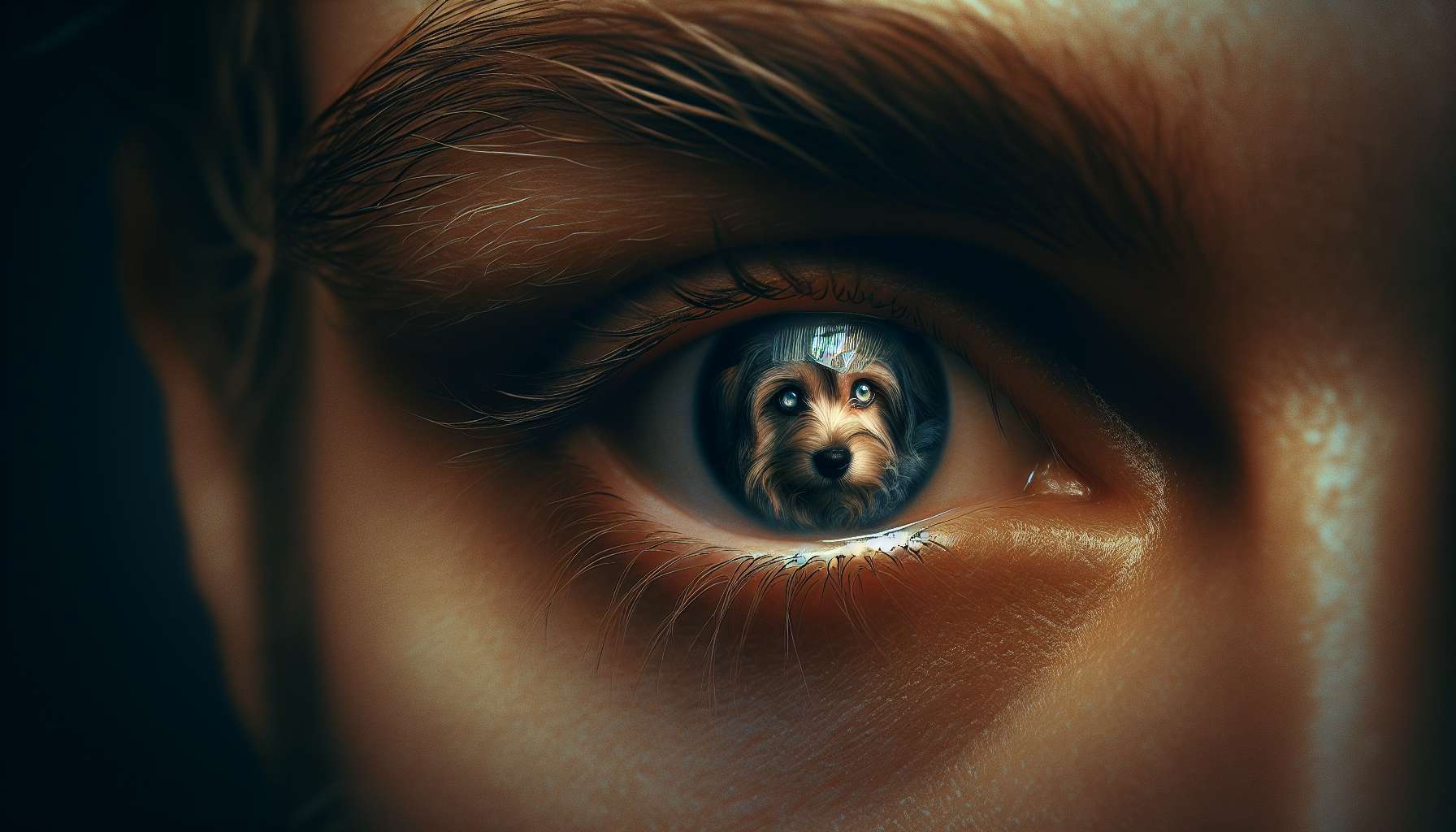The relationship with a pet is much more than simply owning or being practically responsible for it. For many, the pet is a true life partner, a unique being with whom one forms a deep emotional bond. This relationship is often so strong that it shapes the owner’s very identity. Being “Max’s master” or “Felix’s mom” becomes an essential part of self-definition, a rewarding and structuring role.
Indeed, the pet is a powerful mirror of our personality, our values, and our aspirations. The very choice of species, breed, or pet’s name says a lot about who we are and how we wish to be perceived. Some are reflected in the independence and grace of a cat, others in the loyalty and zest for life of a dog. The pet then becomes an extension of oneself, reflecting our deeper identity.
Over the course of the relationship, a true identification process takes place. The pet’s qualities – its courage, tenderness, resilience – become those that we nurture and admire in ourselves. Conversely, its faults or wounds might echo our own flaws, prompting us to see them with greater kindness. Thus, helping a fearful pet on the path to confidence can be a way to work on our own fears and strengthen our self-confidence.
This identification is particularly strong when the pet has been adopted after a difficult history. Providing a loving home to an abandoned or abused animal then becomes a highly symbolic act, a proof of one’s own capacity to love and heal. The pet’s positive evolution, its “rebirth” through the love of its master, feeds a feeling of pride and competence that impacts identity.
The pet is also an excellent medium for projection and self-realization. Through it, we can express parts of our personality that we might not always dare to assert in the human world. The playful companionship with one’s dog, the maternal tenderness towards one’s cat are identity facets that flourish in the relationship with the pet. It offers a domain of freedom and authenticity where one can be fully oneself, without fear of judgement.
This identity aspect is reinforced by others’ perceptions. Being recognized as “a great animal lover,” “a cat mom,” or “a dog training expert” becomes a valuable part of one’s social identity. The pet is therefore a mediator of social links, a topic for conversation and sharing with other enthusiasts. Communities of owners, specialized forums are all spaces where this common identity around animal love is built and strengthened.
However, this identity construction around the pet also has its downsides. When the pet passes away, it feels as though a large part of oneself crumbles away. The feeling of identity loss can feel violent, especially as pet mourning is not yet fully socially recognized. Losing the status of “Max’s master” means losing not only a beloved being but also a role, a function, a place in others’ eyes.
This loss of identity can be particularly difficult for very isolated individuals, for whom the pet was the main relational and emotional support. The disappearance of this unique companion leaves a huge vacancy, a feeling of no longer knowing who one is or what one’s place is in the world. The risk is high of sinking into depression or isolation.
Supporting pet mourning, therefore, also means assisting the person in rebuilding their identity beyond the lost relationship. This involves helping them to identify and appreciate the other facets of their personality, the other roles, and relationships that define them. While honoring the unique place the pet held in life, it is important to encourage investing in new projects, new connections that will nourish a sense of identity continuity.
A delicate task, which requires patience and kindness. Because this identity forged in relation to the pet is deep, personal, and cannot be replaced overnight. It takes time to learn to redefine oneself, to reconnect to other parts of oneself put aside during the shared life with the pet.
However, this journey also offers an opportunity for beautiful realization: if the pet greatly influenced our identity, it is because it revealed and nourished the best of us. The qualities we cultivated in its presence – empathy, patience, commitment – are precious seeds that only seek to thrive in other relational grounds. In that sense, the identity legacy left by the pet is an invaluable gift, which will continue to guide and inspire us long after its departure.
Key points:
– The relationship with a pet goes far beyond simple ownership, it’s a deep emotional bond that shapes the owner’s identity.
– The pet is a powerful mirror of our personality, our values, and our aspirations. The choice of the species, breed, or name speaks volumes about who we are.
– An identification process is initiated, with the pet’s qualities and faults making echoes to those of the owner, allowing for introspection.
– Adopting a pet after a difficult history strengthens this process, nourishing a feeling of pride and competence.
– The pet is a medium for projection and self-realization, offering a space of freedom and authenticity.
– This identity aspect is reinforced by the perceptions of others and membership of a community of enthusiasts.
– The disappearance of the pet triggers a severe identity loss, especially for isolated individuals.
– Supporting pet mourning involves helping to rebuild identity beyond the lost relationship, by valuing other aspects of one’s personality.
– The identity legacy left by the pet is invaluable, the qualities cultivated in its contact continuing to guide us beyond its departure.
👉 To download docx (Editable) file click here : Click here
👉 To download PDF file click here : Click here
👉 To download MP3 file click here : Click here







